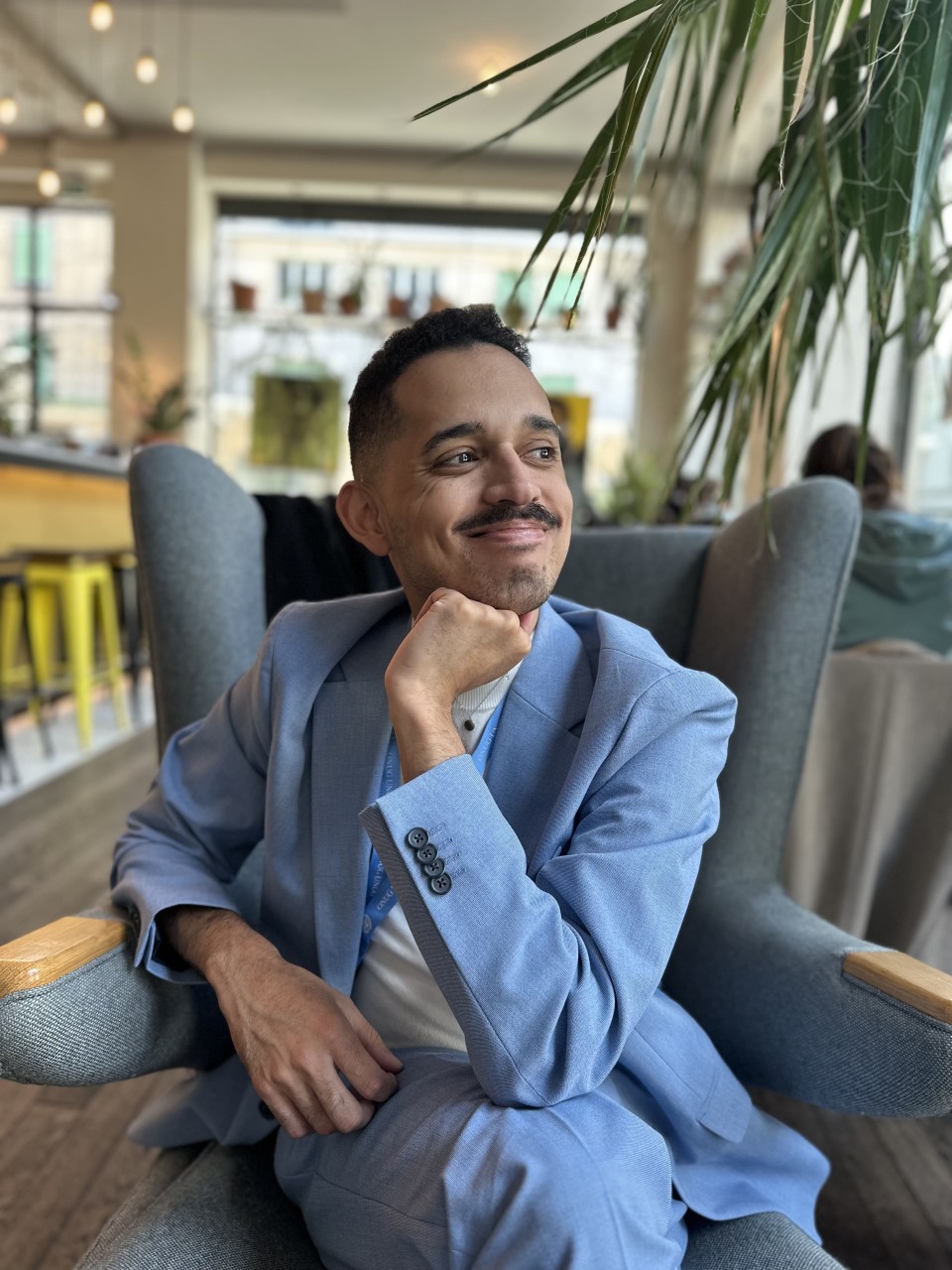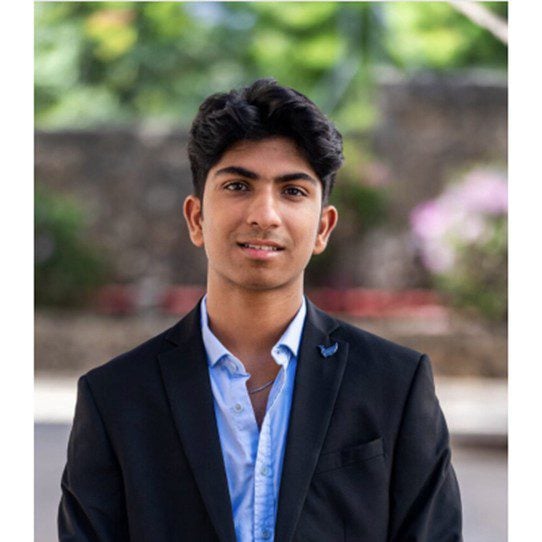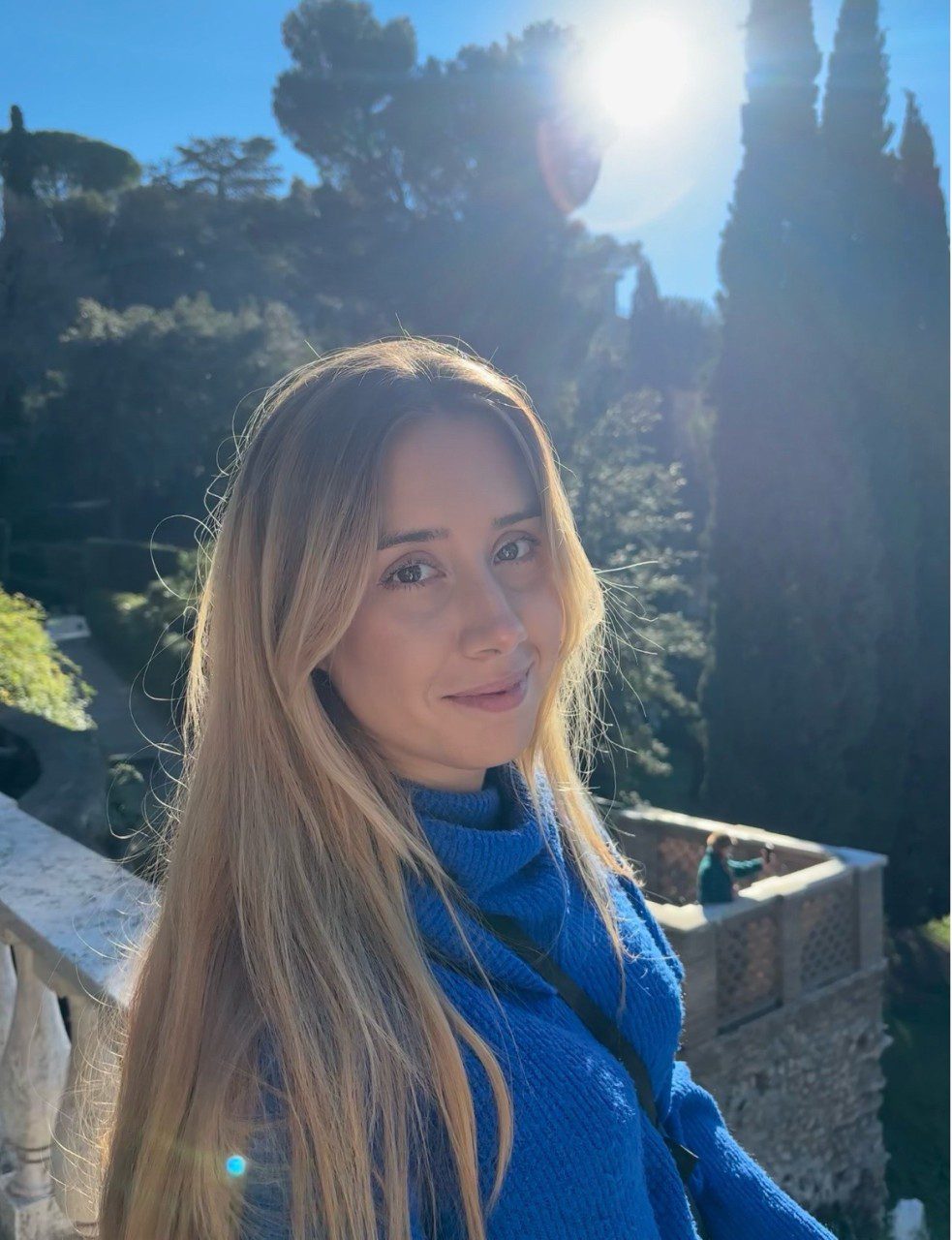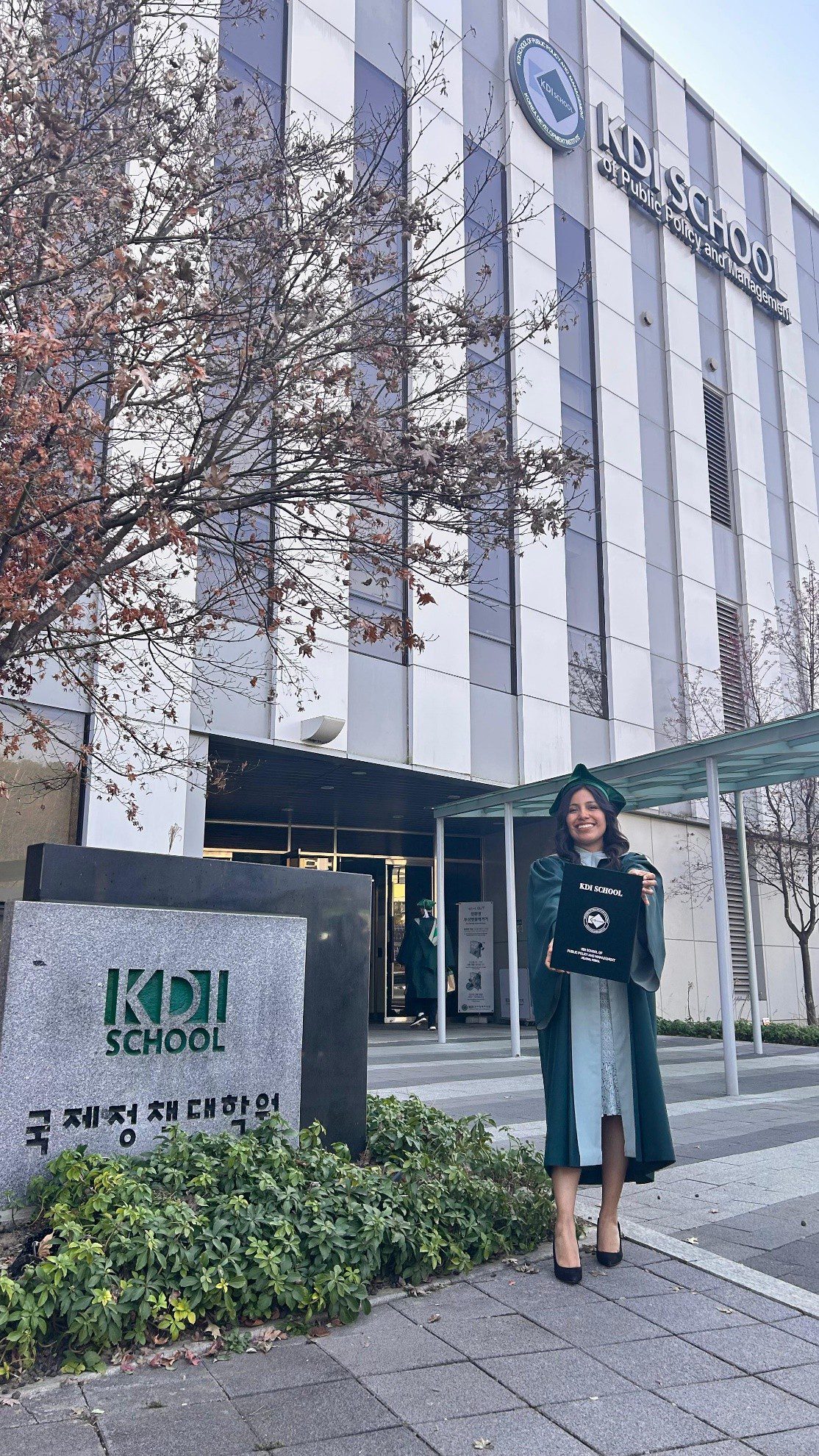From the Favelas of Brazil to the Halls of Sorbonne: Rodrigo’s Journey to a Human Rights Master’s Without a Traditional Scholarship
University: Université Paris 1 Panthéon-Sorbonne
Degree: Master’s in Human Rights Law
Previous Education: Federal University of Minas Gerais (UFMG), Brazil – Bachelor’s in Law
Scholarship: Tuition Reduction for Non-EU Students (paying only €330/year as semester contribution) – Free Tuition
Standardized Exams: DALF C1 (French Proficiency)
Social Media:

The Journey
My name is Rodrigo Tadeu Guimarães Jales. I’m a 32-year-old human rights activist, international law researcher, and proud Brazilian from the favela of Caetano Furquim, on the eastern side of Belo Horizonte. I am the first person in my entire family to set foot in a university classroom—let alone walk the halls of the Université Paris 1 Panthéon-Sorbonne, one of the most prestigious legal institutions in the world.
Where I come from, education isn’t a given. It’s a fight. It’s what you chase in between bus rides, odd jobs, blackouts, and interrupted dreams. In the favela, we don’t grow up dreaming of the United Nations—we grow up dreaming of surviving.
But from a very young age, I had this stubborn belief: justice should not depend on where you were born. I saw injustice everywhere—on the bus ride to school, in the courtrooms that silenced the poor, in the news headlines that ignored us. And something in me refused to accept that this was “just how the world works.”
That conviction is what led me to study law. First in Brazil, at the Federal University of Minas Gerais, and later, across the ocean, in France, where I pursued a Master’s in Human Rights Law at Sorbonne.
I didn’t choose this path for prestige or comfort. I chose it because I believe the law must be transformed from a tool of exclusion into a shield of protection—especially for those whose names are never cited in legislation, who never get to speak in courtrooms, who live and die undocumented, unnamed, unheard.
Getting into Sorbonne wasn’t about adding a degree to my résumé—it was about reclaiming space. It was about learning the language of power to better defend the powerless. It was about walking into spaces where decisions are made—and making sure those decisions reflect the dignity of the people I represent.
I wasn’t supposed to be here.
Not in Paris.
Not at the UN.
Not advising on global campaigns or writing international legal reviews.
But I am.
Because I worked. Because I refused to disappear. And because I knew, deep down, that when one of us makes it—we open the door for so many others to follow.
This Master’s wasn’t just a degree. It was a declaration: we belong. And we’re not waiting for permission anymore.
Free Tuition Scholarship Details
I did not receive a traditional scholarship. There was no official announcement, no award letter, no institution committing to pay for my studies. I didn’t win a competition or receive applause. What I received was a chance—and sometimes, that’s all you need to begin rewriting your future.
When I was admitted to the Master’s in Human Rights Law at Université Paris 1 Panthéon-Sorbonne, I prepared myself to face the impossible: international tuition fees that most students from the Global South simply cannot afford. But then came the surprise. As a non-EU student, I learned that my tuition would be only €330 per year.
I remember staring at the number. I thought it was a mistake. How could a world-class institution—one that has shaped global legal thought for centuries—charge so little? In that moment, I realised: this was a scholarship. Not in name, but in spirit.
That €330 wasn’t just a discounted fee. It was a radical act of educational justice. It sent a message that echoed louder than any award:
“You are welcome here. Your voice matters. Knowledge should not be gated by borders or bank accounts. You belong.”
In a world where elite education is increasingly commodified, where student debt drowns dreams before they begin, this hidden form of accessibility felt like a revolutionary gesture. It was quiet. Unadvertised. But for someone like me—a first-generation student from a Brazilian favela—it was nothing short of life-changing.
With that €330, I bought more than a place in a classroom. I bought credibility in global spaces. I bought the right to speak in rooms where decisions are made about people like me. I bought the opportunity to imagine, and to act on, a better world.
I want to be clear: it wasn’t easy. I still had to cover living costs in Paris, often relying on community support, side jobs, and public assistance. But that symbolic tuition fee opened the door—and once it did, I made sure to step in with purpose.
And I carry that message with me everywhere I go:
Not all scholarships come with glitter and grants.
Some come as a silent invitation to rise.
And that, for me, made all the difference.
Educational Background
Before setting foot in Paris, before I even dreamed of walking the halls of the Sorbonne, I earned my Law degree from the Federal University of Minas Gerais (UFMG)—one of the most respected public universities in Brazil and Latin America. I graduated with a strong academic record, not because the journey was easy, but because giving up was never an option.
Getting into UFMG was, in itself, a revolution. Coming from a low-income background and a public school system that so often fails Brazil’s poorest students, I had to fight for every grade, every book, every bus ticket to class. While many of my classmates had tutors and private lessons, I had resilience, borrowed books, and a fire in my chest that never went out.
At UFMG, I quickly understood that legal knowledge couldn’t stay within ivory towers. It had to live in the streets, in the favelas, in the places where justice doesn’t arrive on its own. That’s why I immersed myself in public interest law and human rights work from the very beginning.
I worked with refugees seeking protection in Brazil. I defended LGBTQIA+ youth against discrimination. I supported survivors of gender-based violence. I engaged in legal clinics where the people who came for help didn’t speak legalese—they spoke desperation. And I learned to listen.
I was not just studying law. I was living it. Feeling its weight. Testing its limits.
I also participated in national and international programmes related to migration law, racial justice, education in emergencies, and youth empowerment, contributing to research projects and fellowships that shaped me far beyond the classroom. These weren’t extracurriculars—they were lifelines. Each experience sharpened my understanding that law without empathy is tyranny. And that the law must evolve if it is to serve the communities it often excludes.
But I knew I needed more.
I wanted to gain a deeper understanding of international legal systems, to study the frameworks used by the UN, the European Court of Human Rights, and global institutions. I wanted to challenge Eurocentric legal standards and ensure that voices from the Global South—especially queer, Black, and Indigenous voices—were no longer silenced.
That’s what led me to the Master’s in Human Rights Law at Université Paris 1 Panthéon-Sorbonne.
Not because I wanted prestige. But because I wanted precision.
Not because I needed another title. But because I needed tools.
Tools to dismantle unjust systems, to protect the vulnerable, and to imagine what justice might look like when it finally includes all of us.
How Did You Prepare to Apply to French Institutions?
I prepared the way most first-generation students do: not with private counsellors, test prep books or international advisors—but with a borrowed laptop, a shaky Wi-Fi connection, and a dream too bold to abandon.
I didn’t grow up with the vocabulary of higher education abroad. I didn’t know what a “personal statement” was, or how to tailor a CV for a European institution. There were no mock interviews or university fairs in my community. What I had was grit. Curiosity. And a relentless drive to figure it out—one Google search at a time.
I started with Campus France, obsessively reading every page in both English and French, taking notes like my life depended on it—because, in many ways, it did. I searched for real stories from international students and found blogs, videos, and Instagram posts from others who had made the journey. I asked strangers on LinkedIn for advice. Some never replied. Others sent me kind messages that felt like breadcrumbs on an invisible path I was trying to walk.
I built a roadmap from fragments—official websites, forums, blog posts, Reddit threads. When something wasn’t clear, I emailed, called, asked again. I wasn’t afraid to sound naïve. I was afraid not to try.
And when the forms overwhelmed me, when the language barrier felt suffocating, when my inner critic whispered that I didn’t belong in those classrooms—I reminded myself of the kids in my community, of my mother’s sacrifices, of every door that had already been closed in my face. I kept going. Not because it was easy, but because giving up was not an option.
Every document I submitted, every translated transcript, every motivation letter I rewrote five times over—it was a small act of resistance. A declaration that someone like me could, in fact, reach the institutions that were never designed for people from the margins.
I didn’t have a map.
So I drew my own.
And in doing so, I didn’t just find a way in for myself. I carved a path that I now help others walk too—because I know how lonely it can feel when you’re trying to build a future that no one around you has ever seen.
Talk about any standardized tests you've taken such as DALF. How did you prepare for those exams?
I didn’t take the TOEFL. I didn’t take the GRE. And not because I didn’t want to—but because I couldn’t afford to.
In a world where access to opportunity is often measured by your ability to pay for a code, a certificate, or a test centre—my reality was different. I knew I needed a diploma in French to apply to the Sorbonne. So instead of paying for expensive courses, I offered something else: my time.
I found a brilliant French teacher in my city and proposed an exchange:
“I’ll work for you as your secretary—organise your materials, type your documents, help with scheduling—in exchange for lessons.”
She agreed.
Every week, I arrived at her apartment early, worked two hours on her admin tasks, and then sat down to learn French. From scratch. With no textbook, no fancy app, just a borrowed dictionary and a dream.
That’s how I prepared for the DALF C1—one of the most advanced diplomas in the French language. I studied during bus rides. I revised vocabulary while waiting at government offices. I whispered conjugations in the kitchen while washing dishes for my family.
And when I finally walked into that exam room, I wasn’t carrying a $2,000 prep course or a perfect accent. I was carrying resilience. I was carrying every early morning, every late night, every sacrifice.
And I passed.
Not because I had all the resources—but because I refused to let the lack of them define me.
To anyone preparing for these exams without money, mentors or materials: you are not at a disadvantage—you are training in a different kind of intelligence. One that cannot be taught in prep schools. One that teaches you to adapt, negotiate, and fight for what matters.
And trust me: the world needs that kind of intelligence.
How Did You Prepare to apply for a free tuition scholarship?
I didn’t apply to a scholarship with a name on a plaque or a headline in a newsletter. There was no patron institution backing me. But I approached my application to the Sorbonne as if I were competing for a place on the world stage—because in many ways, I was.
I treated every requirement with the urgency of someone who knew what this opportunity would mean. My motivation letter wasn’t a formality—it was my voice breaking through generations of silence. I described the narrow streets of the favela where I grew up. The community that raised me. The injustices I saw, not in books, but in the lives of my neighbours. I shared not only what I had done—but why I had done it.
My story wasn’t tidy. It was real. And I believe it stood out because it wasn’t about perfection. It was about possibility.
How was Your Experience at the Université Paris 1 Panthéon-Sorbonne?
Studying at the Sorbonne felt, at times, like standing in the middle of history—and at other times, like standing completely alone.
The classrooms were beautiful, the syllabi rigorous, and the minds around me brilliant. But as one of the very few Latin American, queer, first-generation students in my cohort, I often felt like I was walking a tightrope between pride and alienation.
There were nights I studied until dawn, not just because the workload was heavy—but because I feared falling behind in a language that wasn’t mine. There were days I skipped meals to afford metro tickets. And there were moments I looked around and wondered: Do they see me here?
But I stayed. I spoke up. I showed up—even when my voice shook. My presence became my protest: we don’t just visit these institutions—we belong in them.
How Do You Rate theUniversité Paris 1 Panthéon-Sorbonne Academically and Why?
Academically, the Sorbonne is exactly what you’d expect from an institution with centuries of legacy: intellectually challenging, deeply analytical, and demanding. It pushed me to refine my arguments, to think in new frameworks, and to stretch the way I understood international law.
What impressed me most wasn’t the prestige—it was the invitation to interrogate it. Professors encouraged us to question legal traditions, to think about human rights not just as fixed instruments, but as living, breathing principles that must evolve with society.
Still, it wasn’t always inclusive. The curriculum often centred Eurocentric perspectives. But that only made me more committed to bringing in voices from the Global South, from marginalised communities, from our lived experiences.
And that tension? It sharpened my thinking more than any textbook ever could.
How Does the Université Paris 1 Panthéon-Sorbonne Support International Students?
There is support for international students—but it’s not always visible, and it’s certainly not always accessible.
Administrative processes in France can be labyrinthine, especially for students unfamiliar with the system or the language. Resources like visa help desks, student unions, and psychological services existed—but often buried under bureaucracy.
What truly sustained me were other students. The informal WhatsApp groups. The spontaneous translation help. The shared spreadsheets on housing scams. The solidarity that bloomed in the in-between spaces, far from official channels.
We, the students from the Global South, became each other’s support system. We built our own scaffolding, and we held each other up when the system forgot us.
Are Your Classes Conducted in English or in French?
All my classes, assessments, readings, and exams were conducted entirely in French. There was no shortcut, no safety net. If I wanted to succeed, I had to speak the language of the institution.
But French wasn’t just a tool—it was also a test of endurance. I had to unlearn the shame I carried about my accent. I had to find the courage to ask questions even when I didn’t yet have the words. I had to trust that my ideas mattered, even when they stumbled on the way out.
And somehow, I made it work. Because I had no other choice.
Would Potential Students Have Any Problems Academically Not Knowing French?
Yes—students without strong proficiency in French will face real and immediate obstacles. Especially in a legal programme like mine, where nuance, terminology, and argumentation are everything.
That’s why I made the decision to take the DALF C1, the official diploma certifying advanced proficiency in French. But even preparing for that exam was a story of resilience: I couldn’t afford classes, so I offered to work as a secretary for a French teacher in exchange for lessons.
I studied legal French by night, filed papers by day, and memorised vocabulary on the bus. Because I knew: if I wanted to sit in that lecture hall, I’d need more than just admission. I’d need language as power.
What Do You Think Made Your Application Stand Out?
I believe what set me apart wasn’t academic perfection—but mission clarity.
I wasn’t applying just to study—I was applying to continue a fight I’d already started. My application reflected a life shaped by injustice, and a determination to challenge it with the law as my tool.
I made it clear: this degree wasn’t the destination. It was a stepping stone toward building legal frameworks that included the favelas, the undocumented, the forgotten.
My application wasn’t just a story. It was a promise.
What Would You Have Done Differently if You Were Going Through the Process Again?
I would’ve asked for help much earlier. For so long, I carried everything on my back—out of pride, survival instinct, and fear of being seen as a burden.
But community is not a luxury. It’s a strategy. And vulnerability is not weakness. It’s how we build bridges.
I also wish I had prepared better for life in Paris—not just academically, but emotionally and logistically. I would have connected with student communities in advance, explored housing options more carefully, and applied for living-cost grants I didn’t even know existed.
But every mistake became part of the learning. And for that, I’m grateful.
What Advice Would You Give Those Looking to Apply for a Similar Scholarship?
Here’s what I want you to know:
You don’t need to be perfect. You don’t need to be fluent. You don’t need to be rich.
You just need to be ready to bet on yourself.
If you’ve lived injustice, if you’ve had to fight twice as hard to get half as far—you are exactly the kind of person who belongs in international institutions. Not as a guest. But as a necessity.
Tell the truth. Be bold. And trust that your scars are not setbacks—they are your credentials.
And when the door opens—walk through it with your whole chest. And leave it open for someone else.
Because someone, somewhere, is looking at your life right now and whispering:
“If they made it, maybe I can too.”
Want to submit your
scholarship journey?
Submit Your Story Here!
More Scholarship Recipients

My name is Arsh Dharani, and I am an international student originally from the Democratic Republic of the Congo (DRC). I am .... Read more

Hi! My name is Arawa. I’m a Marie Skłodowska-Curie PhD researcher working on AI-based neuroimaging biomarkers for Parkins .... Read more

Hello! My name is Alexandra Eras, and I am from Ecuador. I studied Economics and completed a major in Gender, Violence, and .... Read more

Leave A Comment